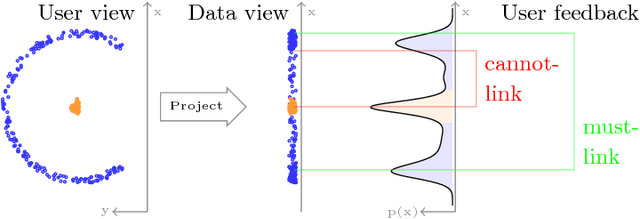COBRAS-TS: A new approach to Semi-Supervised Clustering of Time Series
Paper and Code
May 02, 2018



Clustering is ubiquitous in data analysis, including analysis of time series. It is inherently subjective: different users may prefer different clusterings for a particular dataset. Semi-supervised clustering addresses this by allowing the user to provide examples of instances that should (not) be in the same cluster. This paper studies semi-supervised clustering in the context of time series. We show that COBRAS, a state-of-the-art semi-supervised clustering method, can be adapted to this setting. We refer to this approach as COBRAS-TS. An extensive experimental evaluation supports the following claims: (1) COBRAS-TS far outperforms the current state of the art in semi-supervised clustering for time series, and thus presents a new baseline for the field; (2) COBRAS-TS can identify clusters with separated components; (3) COBRAS-TS can identify clusters that are characterized by small local patterns; (4) a small amount of semi-supervision can greatly improve clustering quality for time series; (5) the choice of the clustering algorithm matters (contrary to earlier claims in the literature).
 Add to Chrome
Add to Chrome Add to Firefox
Add to Firefox Add to Edge
Add to Edge